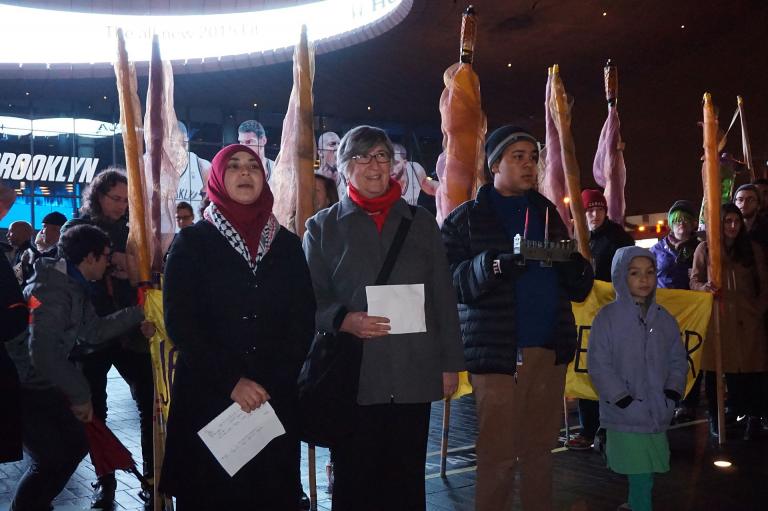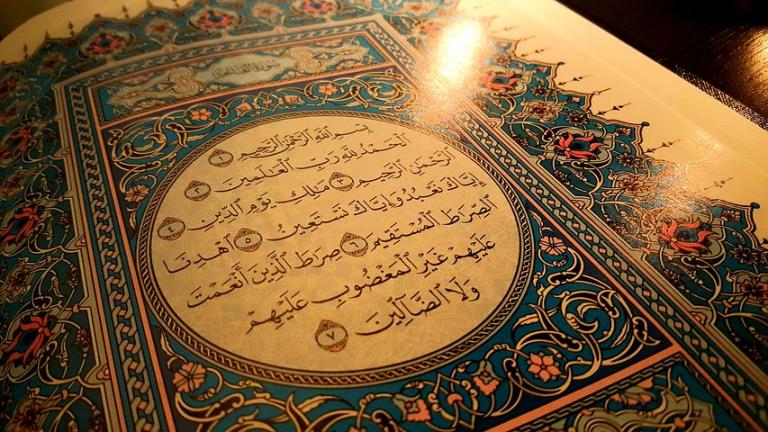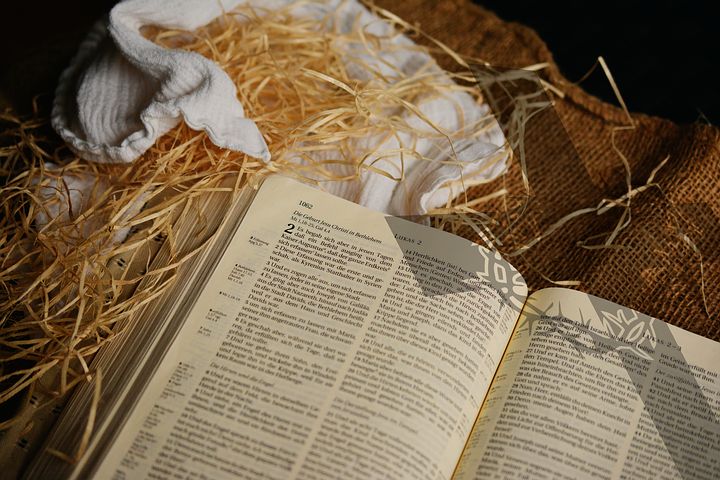
There is a prevalent myth among Non-Muslims that the Qur’an promotes hatred of the Jews and Christians, as well as being anti-Semitic. To be frank, this myth is equally prevalent among the Muslims. Both groups are flat out wrong, as I will explain here.
They often quote the following verse.
O You who have believed! Do not take the Jews and Christians as your friends (Auliya). They are friends of one another. … The Qur’an 5:51
The word translated as ‘friends’ is Auliya. Many Quranic translators have indeed used ‘friends’ for it, which actually does NOT mean friends. I have many friends but they are not my Auliya. The word for ‘friend’ in Arabic is variably used as rafeek, sadeek or khaleel. Additionally, other places where Auliya has been used in the Qur’an is for God or Prophet Muhammad in terms of being protector, guardian, and protecting friend, and used in religious and/or political terms. Nowhere else has Auliaya been translated as friends except in this verse.
Moreover, the verse, quite specifically, asks Muslims not to take Al-Yahood (Jews) and Al-Nasaraa (Christians) as allies. “Al” in Arabic refers to something or someone specific. In other words, the passage is about specific group of Jews and Christians., and not about all Jews and all Christians of all times. That is a big generalization, and a mis representation of the teachings of the Qur’an.
Similarly, the same ‘Al’ is also used when referring to Arabs. If we were to assume that Al- in 5:51 refers to all Jews and all Christians, we have to then assume the following verse condemns all Arabs-which is of course not the case.
Arabs-some are good, some bad
The Arabs of the desert are the worst in unbelief and hypocrisy, and most fitted to be in ignorance of the command which Allah has sent down to His Messenger: But Allah is All-knowing, All-Wise. 9:97
But some of the desert Arabs believe in God and the Last Day, and look on their payments as pious gifts bringing them nearer to God and obtaining the prayers of the Messenger. Surely it shall be means of nearness for them. Soon will God admit them to His Mercy: for God is Oft-forgiving, Most Merciful. 9:99
Not all of them were alike:
The Qur’an actually praises Jews and Christians in several places.
O’ children of Israel! Remember My favors which I bestowed upon You; that I exalted you above all other nations.2:47 and 2:122
And there are, certainly, among the People of the Book, those who believe in God, in the revelation to you, and in the revelation to them, bowing in humility to God: They will not sell the Signs of God for a miserable gain! For them is a reward with their Lord, and God is swift in account. 3:199
Not all of them are alike: Of the People of the Book are a portion that stand (for the right): They rehearse [recite] the Signs [revelations] of God all night long, and they prostrate themselves in adoration. They believe in God and the last day, and they enjoin what is right and forbid the wrong and they strive with one another in hastening to good deeds, and those are among the good. And whatever good they do, they shall not be denied it, and God knows those who guard (against evil). (As for) those who disbelieve, surely neither their wealth nor their children shall avail them in the least against God; and these are the inmates of the fire; therein they shall abide. 3:113–116
Among the People of the Book are some who, if entrusted with a hoard of gold, will (readily) pay it back; others, who, if entrusted with a single silver coin, will not repay it unless you remain firm in demanding, because, they say, ‘there is no call on us (to keep faith) with these Gentiles’, and they tell a lie against God, and (well) they know it. Yea, whoever fulfills his promise and guards (against evil)—then surely God loves those who guard (against evil). (As for) those who take a small price for the covenant of God and their own oaths—surely they shall have no portion in the hereafter, and God will not speak to them, nor will He look upon them on the day of resurrection nor will He purify them, and they shall have a painful chastisement. 3:75–77
 Breaking bread together and marrying people of the book is allowed
Breaking bread together and marrying people of the book is allowed
Not only does the Quran NOT prohibit friendship with Jews and Christians, it actually allows marrying them! Moreover, ‘the food of the People of the Book is also made lawful’ refers to social gatherings and breaking bread together.
Today all good clean things have been made lawful for you; and the food of the People of the Book is also made lawful for you and your food is made lawful for them. Likewise, marriage with chaste free believing women and also chaste women among the People who were given the Book before you is made lawful for you, provided that you give them their dowries and desire chastity, neither committing fornication nor taking them as mistresses. 5:5
And the Qur’an commands Muslims to dialogue with Jews and Christians in the best manners.
Do not argue with the People of the Book except in the best manner—except for those wicked amongst them, and say: “We acknowledge what was revealed to us and in what was revealed to you; Our God and your God is the same. To Him we peacefully surrender.”29:46
Muslims don’t have monopoly on paradise
Contrary to popular belief, Muslims do not have a monopoly on the hereafter and salvation. In fact, Jews and Christians, much like any other faith, are promised paradise should they believe in One God and act righteously, much like the commands for Muslims. Verses 2:62 and 5:69 are strikingly similar.
Surely those who believe, and those who are Jews, and the Christians, and the Sabians, whoever believes in Allah and the Last day and does good, they shall have their reward from their Lord, and there is no fear for them, nor shall they grieve. The Qur’an 2:62
Praise for the Christians and followers of Jesus
Then We sent Our messengers in their footsteps and followed them with Jesus, the son of Mary, and gave him the Gospel. We placed in the hearts of those who followed him kindness and mercy.The Qur’an 57:27
“[Mention] when Allah said, ‘O Jesus, indeed I will take you and raise you to Myself and purify you from those who disbelieve and make those who follow you superior to those who disbelieve until the Day of Resurrection. Then to Me is your return, and I will judge between you concerning that in which you used to differ’” The Qur’an 3:55
Torah and Gospels are also super critical

Muslims and Non Muslims have pointed out to numerous passages that are super-critical of the Jews, and to lesser extent, the Christians.
I don’t disagree with that assertion.
The Qur’an does indeed criticize Jews and Christians. But it does not criticize all Jews and all Christians. And certainly not all Jews and all Christians of all times- as a group. It is also of note that much of the criticism of Jews in the Qur’an is addressed to the Israelites who accompanied Moses out of Egypt, and their frequent grumblings and their transgression. Additionally, it is critical of the ones at the time of Prophet Muhammad who were hypocritical and/or plotting against the young budding Muslim community in Medina, who were put at risk of being extinct before flourishing as an Umma.
One can easily argue that the Torah has used more harsh words than the Qur’an. Here is a small sample.
The Lord told Moses, “Quick! Go down the mountain! Your people whom you brought from the land of Egypt have corrupted themselves.” Exodus 32:7
Then the Lord said, ‘I have seen how stubborn and rebellious these people are. Now leave me alone so my fierce anger can blaze against them, and I will destroy them.’ Exodus 32:9–10
Then the Lord said to Moses and Aaron, “How long must I put up with this wicked community and its complaints about me? Yes, I have heard the complaints the Israelites are making against me. Now tell them this: ‘As surely as I live, declares the Lord, I will do to you the very things I heard you say. You will all drop dead in this wilderness!…Numbers 14:26-29
Jesus’ criticism of temple leadership, and calling them ‘snakes and sons of vipers’.
The criticism of the Jews is not limited to the Qur’an and the Torah. The Gospels talk about the transgression of the Israelites in much the same way, reminding them of their transgressions, including killing of their prophets. Chapter 23 of Matthews is about Jesus’ severe criticism of the temple leaders at the time.
What sorrow awaits you teachers of religious law and you Pharisees. Hypocrites! For you build tombs for the prophets your ancestors killed, and you decorate the monuments of the godly people your ancestors destroyed. Then you say, “If we had lived in the days of our ancestors, we would never have joined them in killing the prophets.” But in saying that, you testify against yourselves that you are indeed the descendants of those who murdered the prophets. Go ahead and finish what your ancestor started. Snakes! Sons of vipers! How will you escape the judgment of hell? Matthew 23:29–33
Final Thoughts
To be clear, the Qur’an indeed is often very critical of Jews and Christians. But so are Torah and the Gospels. I have not quoted the critical verses from the Qur’an here since most people are familiar with them and these are frequently quoted by many to show that the Qur’an ‘promotes hatred towards Jews and Christians’. But if we study the whole Qur’an, we will find that, while it does not sugar coat the bad deeds of anyone, including Muslims, (God Almighty does not need to be politically correct) it often praises Jews and Christians- anyone who meets the criteria of good deeds as set forth by the Almighty.
As Muslims, we cannot generalize, and put all Jews and Christians in the same box ‘because the Qur’an is critical of them’. In fact we should be the last to generalize and stereotype a whole religion and group of people, much the same way we don’t want to be stereotyped. (Remember the golden rule?)
We don’t like it when the passages from the Qur’an are taken out of context. But we should not be doing the same to twist the meaning of the Qur’anic passages to fit into our pre-existing views and biases. We cannot look at a few passages to draw conclusions, and instead need to take a deeper look at the entire corpus before making any conclusions to have a more balanced, more accurate view on a topic.




